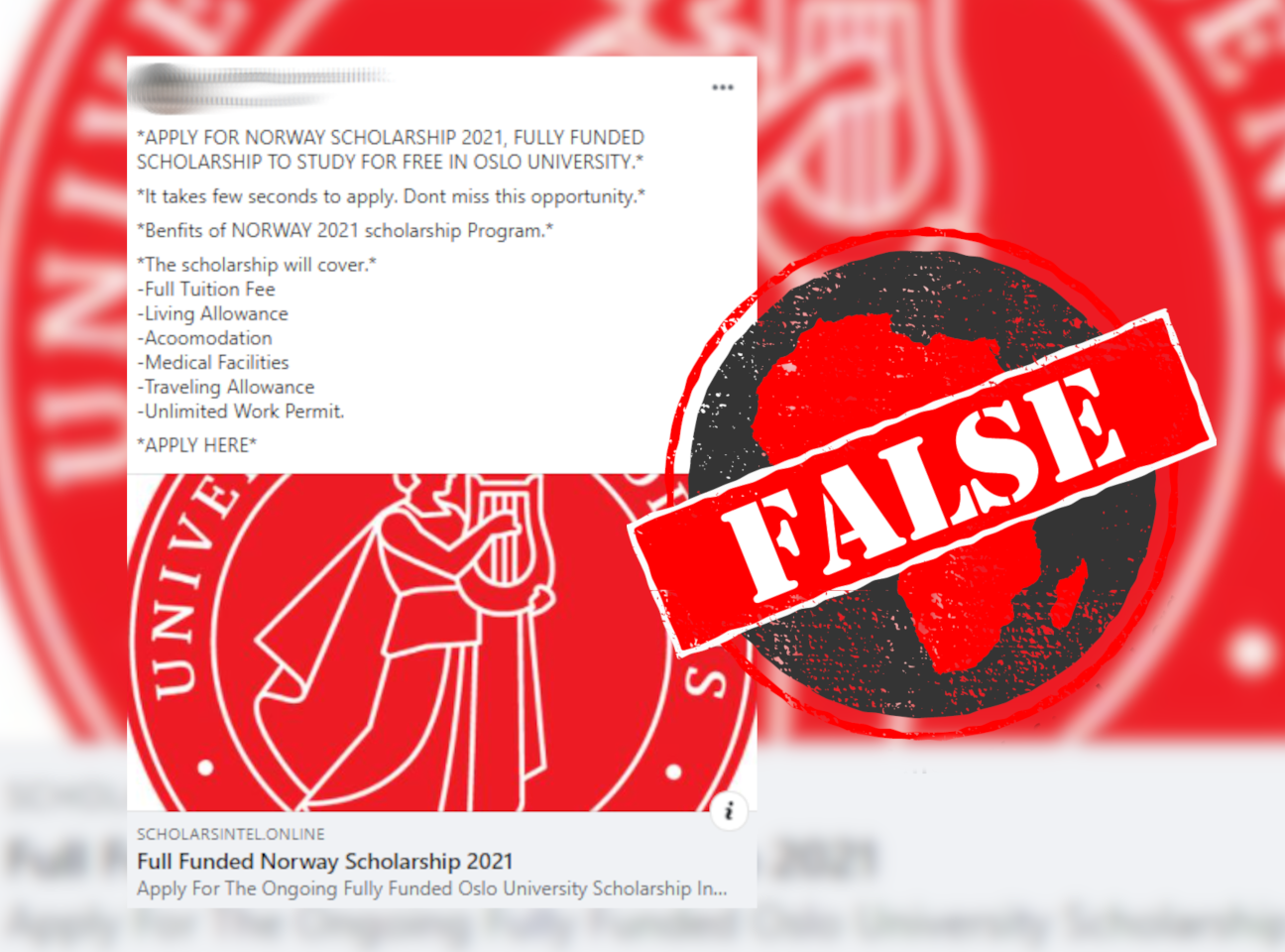“Apply for Norway scholarship 2021, fully funded scholarship to study for free in Oslo University,” reads a post shared in WhatsApp and Facebook groups in Kenya.
The posts include a link to a webpage titled: “Full funded Norway scholarship 2021”.
The posts claim the scholarship includes full tuition fees, living allowance, accommodation, medical facilities, travelling allowance and an unlimited work permit.
But is the offer legit?

Engagement bait scam
If you open the link, you’re asked to fill in your name, email address, country of origin and the course you intend to study.
But suspiciously, regardless of whether you fill in these details or just click “apply”, you get a message of congratulations and are led to the next stage which asks for more personal details.
Then a message pops up which reads: “After considering your answers, you've been approved to complete your visa registration for the Oslo University scholarship. Complete the steps to obtain the visa form.”
But here comes the catch: “You may get the visa form with only one step, kindly click the ‘Invite Friends/Group’ button below to share this information with 15 friends or 5 groups on WhatsApp so That They Can Aslo Benefit.”
This is a classic example of engagement bait. These are usually social media posts that ask people to interact by liking, commenting or sharing. This increases the post’s reach but the reward promised is fabricated.
Protect yourself online
Posts like this might even be an attempt to gather personal details that can be used in identity theft.
The posts are also full of grammatical errors, another clue that the posts aren’t genuine.
Africa Check has looked into similar fraudulent posts a number of times. To protect yourself against online scams, read our guide to Facebook scams and how to spot them.
Republish our content for free
For publishers: what to do if your post is rated false
A fact-checker has rated your Facebook or Instagram post as “false”, “altered”, “partly false” or “missing context”. This could have serious consequences. What do you do?
Click on our guide for the steps you should follow.
Publishers guideAfrica Check teams up with Facebook
Africa Check is a partner in Meta's third-party fact-checking programme to help stop the spread of false information on social media.
The content we rate as “false” will be downgraded on Facebook and Instagram. This means fewer people will see it.
You can also help identify false information on Facebook. This guide explains how.




Add new comment